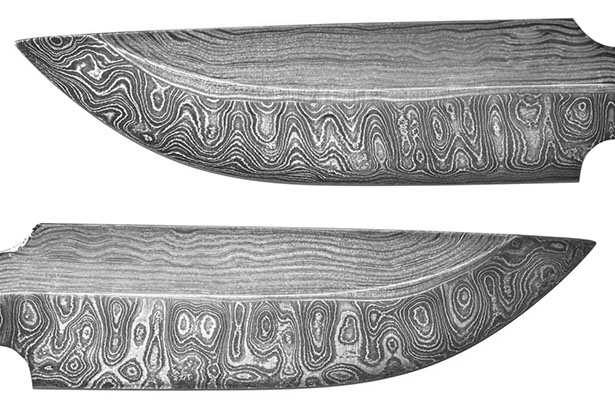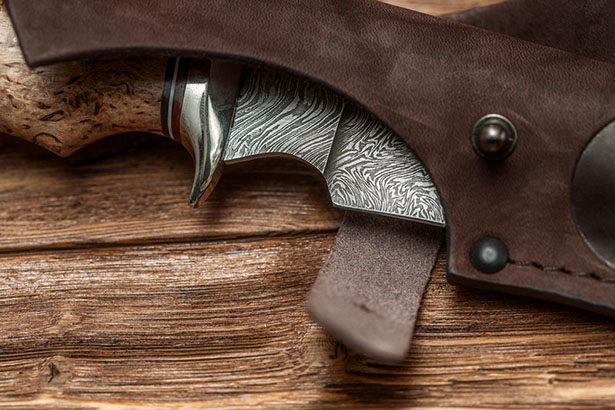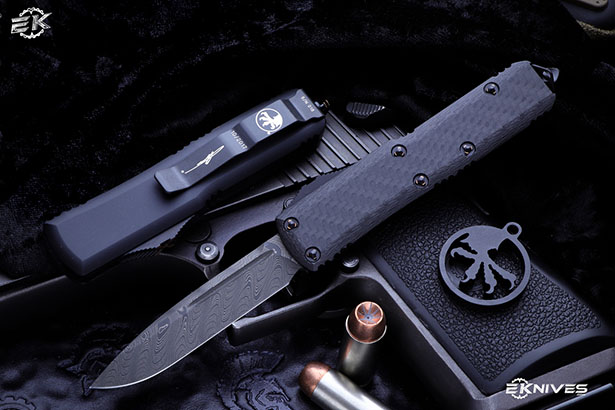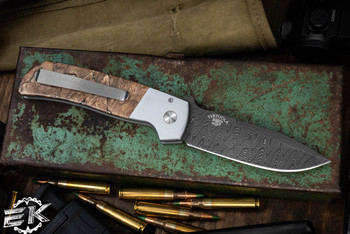5 Facts You Didn’t Know About Damascus Steel
Jan 24th 2019

A knife is an investment of both your time and your money. Some people head down to the nearest sporting goods store to grab a new blade, but, if you are more than an amateur knife owner, you know that to expect quality, you have to buy quality.
If you’re looking to upgrade your knife with an extraordinary blade, Damascus steel is a great choice. Here are some things you may not have known about Damascus steel knife blades.
What Is Damascus Steel?
Damascus steel refers to the method of forging used in and around Syria from 750 to 1750 C.E. To create this super-strong alloy, forgers cast two or more types of metal together to create the watery designs on the blades of these knives.
Damascus steel is one of the more popular ways of forging a blade because it creates such a strong, beautiful knife. Damascus steel knives are stunning with their wavy or geometrical designs on their blades; it’s why many are initially attracted to them.
1. Forged Using Ancient Methods
Initially, Damascans used wootz steel ingots from nearby India to forge, resulting in swords that were almost unbeatable on the battlefield. Unfortunately, the exact methods for using wootz and Damascus steel have been lost to time. Forgers still use comparable techniques, however, and create blades that are sharp, strong, and beautiful to behold.
When Europeans first encountered Damascus steel, they turned the metal into a mythical idea. Soldiers stated that the swords could cut through silk fluttering through the air and chop off a rifle's muzzle. According to these soldiers, Damascus steel could do all this while maintaining its sharpened edge.
Knife aficionados still regard Damascus steel knives as some of the most durable and breathtaking on the market. For some knife collectors, this is the only inducement they need to add a custom knife made of Damascus steel to their collection.

2. Unique Blades
The term “Damascus steel” refers to the method, rather than the materials, with which the blades are forged. The knife may be a combination of different steel alloys cast together and may not always be the same type of steel. In fact, up to five alloys can be used to create one blade.
Not only does the forging process take time and effort, but each blade is also unique due to its creation process. The method of casting two or more alloys together to create an unmistakable pattern creates a blade that looks unlike any other in the world.
3. Extremely Sharp
One of the reasons that Damascus blades are considered investments in the knife world is because of the longevity of their edges. Damascus blades require sharpening much less frequently than most production-quality blades.
That doesn’t mean that they never need sharpening, but you’ll find yourself sharpening a Damascus blade a lot less than the other blades in your collection. Additionally, the presence of multiple steel alloys creates a micro-serration on the edge, which allows Damascus steel to help with slicing or sawing tasks naturally.
Some people wonder if Damascus blades rust. It depends on what kind of steel is used to make the blade. Most modern knives that are made using this ancient technique are made from stainless steel, so they won’t rust.
If your blade is made from high-carbon steel, clean it carefully after each use, making sure it’s completely dry before storing it in its sheath.
4. Very Strong
Not only are Damascus blades sharp (and they will stay sharp), they are also extremely strong. The method of casting two or more alloys creates carbon nanotubes in the blades, allowing for their remarkable strength.
When making a batch of steel, impurities are added to create either a brittle or a malleable blade. While Damascus steel is not more durable than some other modern metal alloys, it is still strong enough for most tasks.

5. Timeless Art and Quality
Damascus blades are sharp and durable; that’s why they made such excellent battle swords. They’re also beautiful. Because of the ancient forging technique, they are a weapon, tool, and art piece.
Most people choose Damascus steel because of its combination of usefulness and timelessness. A Damascus steel blade in your collection will be a striking centerpiece.
Many blade makers offer Damascus steel blades like the Microtech UTX-85 OTF Automatic Knife from Eknives as a limited edition or a signature series. The very method of making these knives makes them unique and one-of-a-kind.
Last Word
Quality blades like Microtech knives and Damascus steel blades are collectors’ items that also work as tools. As with any item of quality, there are also poor substitutes lurking on the market. If the deal sounds too good to be true for a Damascus blade, it probably is.
When you’re looking for a knife of quality, durability, and strength, consider the beautiful, watery design of Damascus steel.

